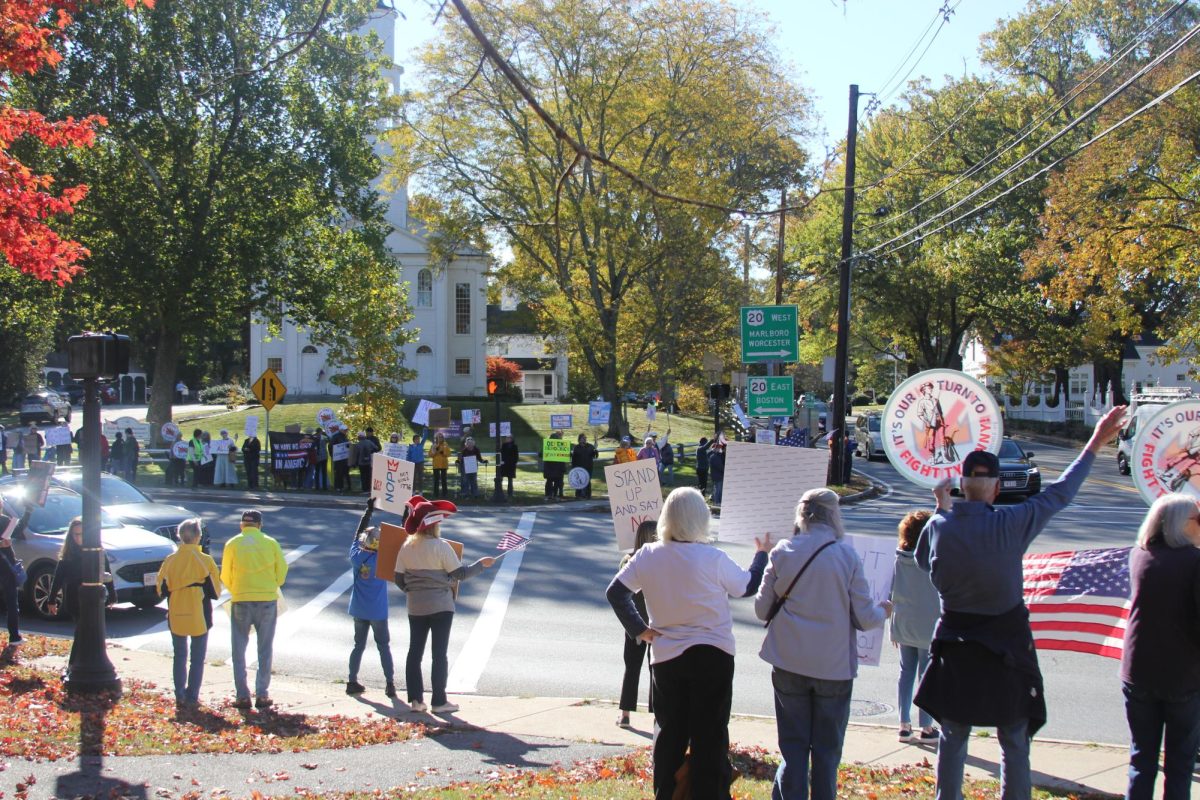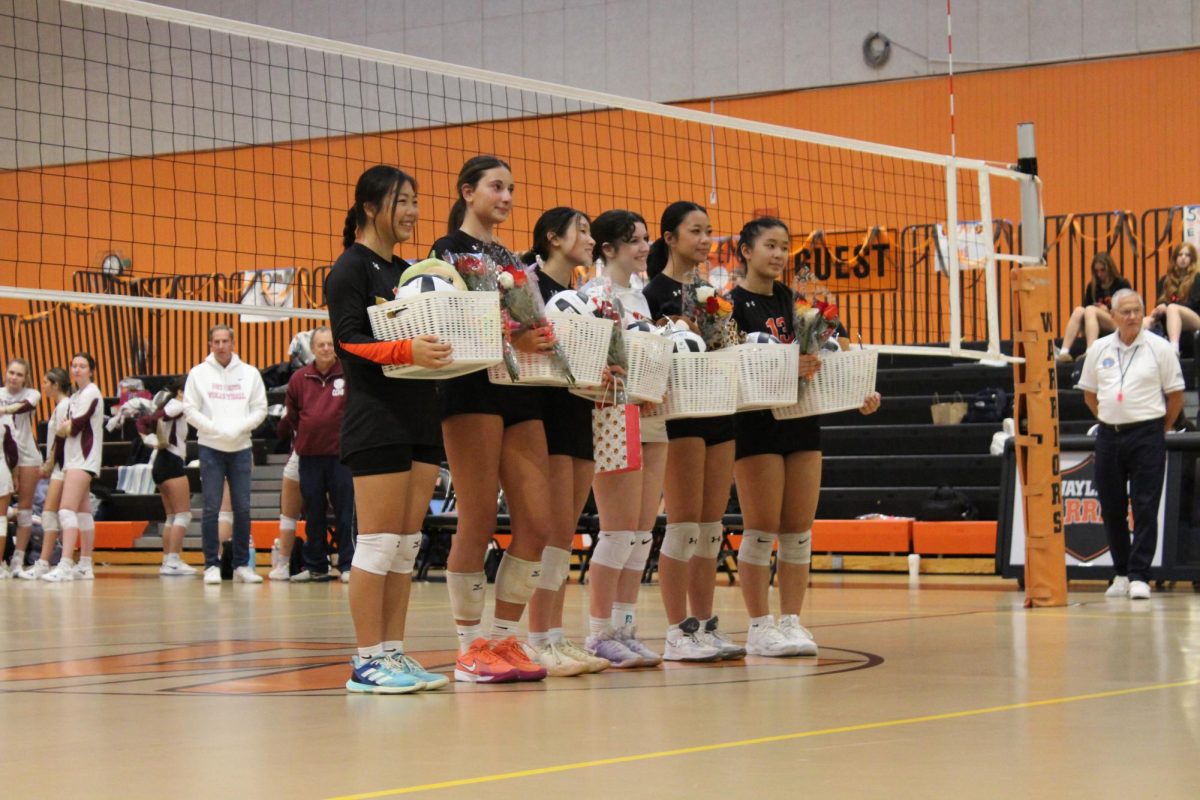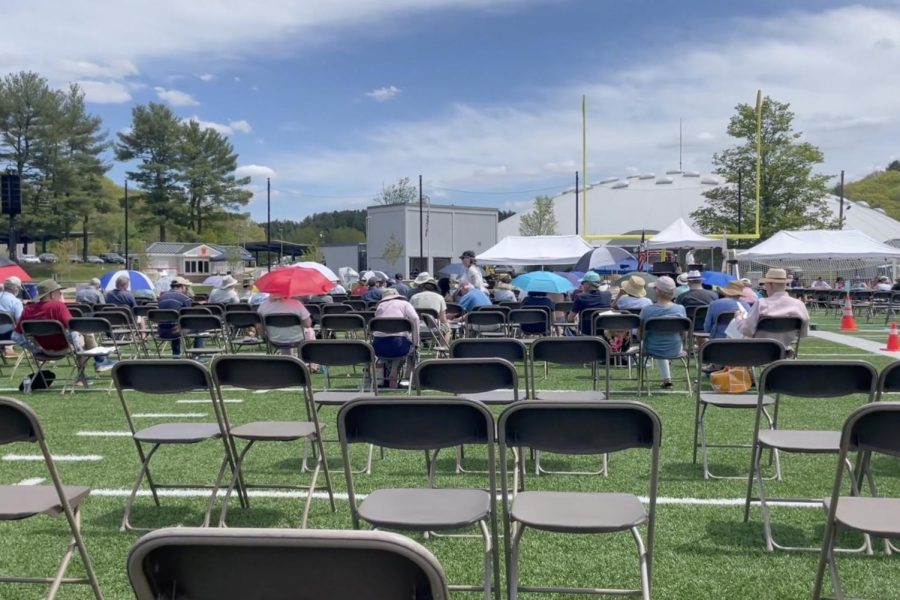Opinion: At town meetings, the minority rules
Credit: WSPN Staff
WSPN’s Genevieve Morrison discusses town meeting and whether its current form in Wayland is actually democratic.
September 8, 2022
On a cloudy Saturday afternoon last October, residents of Wayland, Massachusetts gathered on the high school turf. Hundreds of white folding chairs perched stiffly before an imposing stage, many of them vacant. A man read out a proposal on an echoing microphone. In response, 353 hands rose in support. Just like that, a law passed that affects 13,724 people. This is our town meeting, an almost 400-year-old legislative process that lacks one thing: democracy.
Here’s why. Wayland has an open meeting format, in which voting is available to all citizens. On paper, this sounds about as democratic as it gets, but it doesn’t happen that way. Since it’s impossible to vote without attending what could be four long hours of discussion, many lower-income parents and working families can’t find the time to appear. They have to go to jobs, do household chores or take care of children. As a result, by-laws are often decided by a coalition of older retired voters, the ones with the time to devote a chunk of a Saturday to sitting in a chair. Town meetings across New England tend to have a shockingly low turnout, and Wayland is no exception.
The attendees of this meeting accounted for less than 5% of voting-age residents, meaning that the other 95%, for whatever reason, did not exercise the rights that should be accessible to them. The alternative to accessibility is no less than disenfranchisement. In order to create this accessibility, institutions can’t just exist as they are.
The town meeting is the public forum that decides town budget and legislation across New England. These began in the 1630s, a form of early democracy. But while Massachusetts communities expand in population and evolve into the modern era, the model largely remains the same as the Puritans intended.
We all know about the issue on the table that Saturday: a new turf field for youth sports. Those hands banned its construction for the upcoming three years, arguing that it would create a burden on the budget. The clash of a powerful elderly voting bloc and the demands of the young continues to keep our town at odds, and yet we refuse to keep the open town meeting in the past.
And Wayland is not unique. This issue is indicative of the problematic priorities of our country: our insistence on the status quo at the cost of the better interests of the people. In national elections, older Americans are widely overrepresented. According to The Guardian, in 2016, 72% of Americans 65 and over voted, compared to just 41% of those 18 to 24. Votes turn into legislation, and legislation to action. All of these things happen in our nation with the consent of too few.
It wasn’t the residents’ fault that they happened to be available, or unavailable, on that October Saturday. It also was not their fault that the people who did show up didn’t have as much of an investment in youth sports as, say, the youth. The blame lies in the establishment that actively makes voting unrealistic for many town citizens, in effect, prioritizing the values of one demographic over another.
This doesn’t mean we should trash town meetings, though. Massachusetts law states that any municipality larger than 6,000 residents has the option to transition to a representative format. In this system, citizens elect representatives to be town meeting members who sit through the event and vote on the issues. Considering the fact that Wayland’s population is well over double the recommended minimum, it’s clear there is a straightforward solution to this issue, if only we can use it. Town meetings could become what they’ve always intended to be: a democratic process.
For our nation, however, the changes aren’t so simple. It’s going to take more than a policy pivot to rectify the inequities of centuries of suppression and underrepresentation. But we can learn something from our town.
I’m disappointed that we didn’t get a new field, but I’m even more angry that our local democratic processes cannot and will not represent their people. We’ve outgrown colonial times and the tiny box its legislative system has put us in. It’s time we tried something new.















![This year, the Wayland team is made out of a JV team and a varsity team. There is a wide range of grades from eighth grade to twelfth grade that make up the teams. " [What] I will miss most [about the seniors] is their willingness to be involved," sophomore Mackenzie Grogan said. "Whether it was with school drama or referee frustration, they were really good at listening and giving good advice."](https://waylandstudentpress.com/wp-content/uploads/2025/10/8F0FD331-F005-4C3F-9F77-402D1C1953D6_1_201_a-1200x800.jpg)











